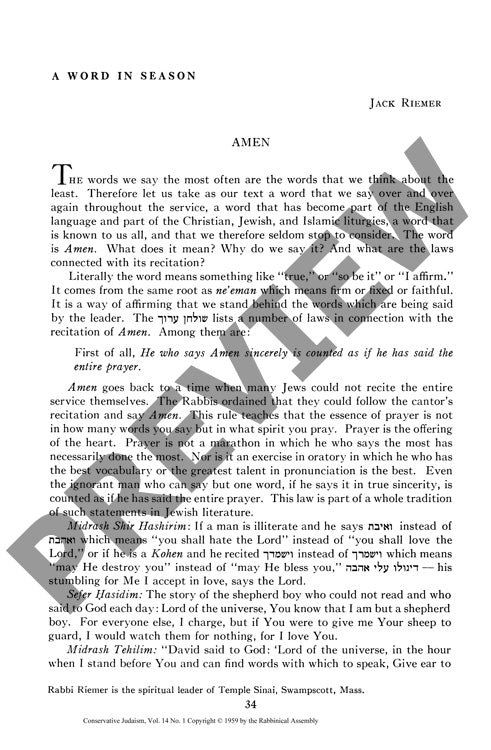A Word in Season
Couldn't load pickup availability
The seemingly simple act of saying "Amen" carries profound theological and practical significance in Jewish liturgy, governed by a complex system of rabbinical regulations that transformed this one-word response into a cornerstone of communal worship. Drawing upon classical Jewish sources including the Shulchan Aruch, Midrash, and Talmudic literature, this analysis reveals three foundational principles: sincere recitation of "Amen" equals the merit of the full prayer itself, respondents must maintain vocal harmony with the cantor, and the response must follow complete blessings to ensure informed participation. Through textual analysis of traditional rabbinic sources, the research demonstrates how these regulations emerged from practical concerns—accommodating illiterate worshippers, maintaining orderly services, and safeguarding against sectarian influence. Beyond mere liturgical rules, these principles illuminate how "Amen" evolved from a basic acknowledgment into a spiritually meaningful affirmation, emphasizing that authentic prayer depends more on sincere intention than on verbal sophistication or vocal prominence.

More Information
-
Physical Description
-
Publication Information
Published 1959
ISBN
-
Publication Credits
Jack Riemer

